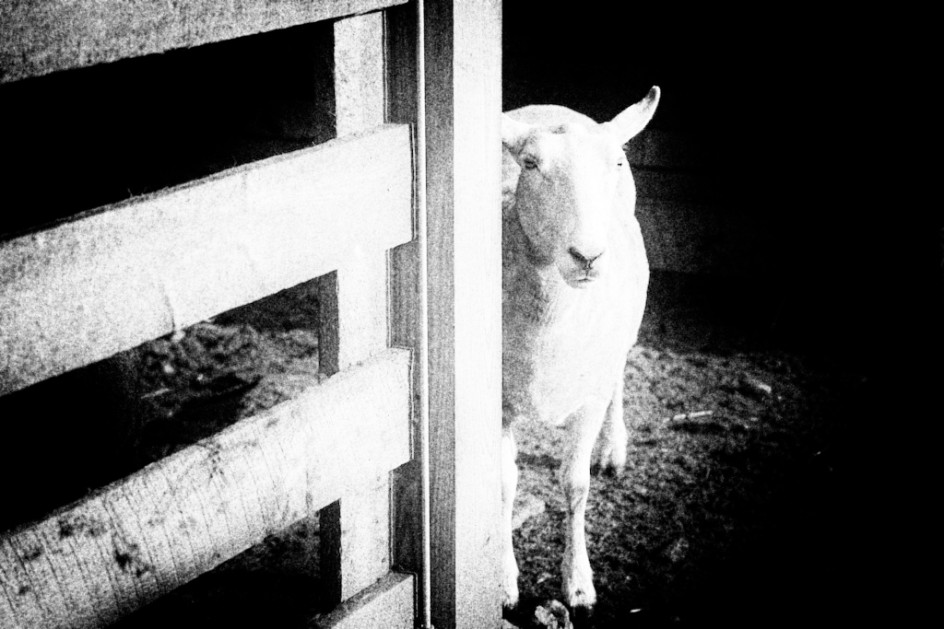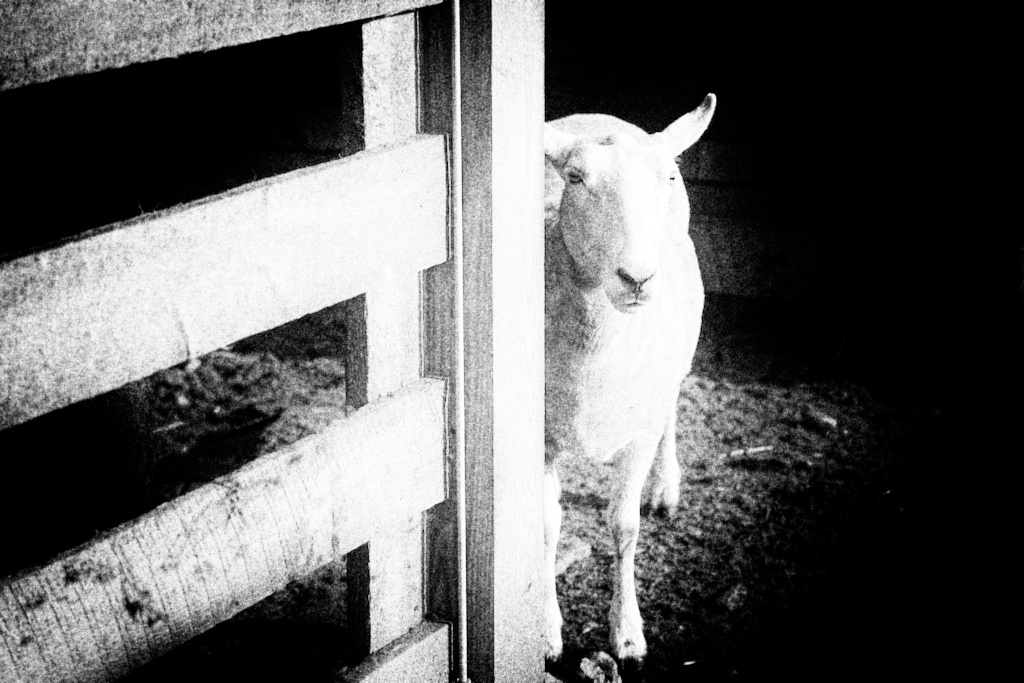
I stopped by the house of a man who used to work at Bedlam Farm, doing odd jobs, a hard-working and good man, he has struggled for years now to feed his family, keep his small and deteriorating house and take care of his wife’s medical problems – diabetes, breast cancer. We came to be friends, he would come by and talk to me, always was around to help me if I needed him. He is always working, sometimes two or three jobs, he cannot keep up, is falling behind, especially since the recession, when there is less work for him to find. Health insurance is out of the question, good jobs are hard to find here, and there are few places he could move that would be cheaper. And if he wanted to move, he couldn’t afford to. Neighbors drop off used clothing for the children, everyone who knows him drops off food, offers him work when there is some.
He is poor, it is hard to see how hard he works and how much he struggles and suffers, with little complaint. There is no work he will refuse. When I left him today – I have a job for him to do – I was discouraged, I could not see a way out for this good man, all he wants to do is work and take care of his family. The child care support for his daughters has just been slashed again, and the girls will have to stay at home, making it even harder for the family to work. He has applied for re-training in information technology, there are no programs, they have been cut also.
I could not recall when we stopped loving the poor in our society, when we began seeing poverty as a moral failing, a weakness of character, a choice. Perhaps it was during the welfare fight’s in the 70’s and 80’s, perhaps it came out of the increasingly angry and polarized battles of the left of the right. This is bewildering to me, as for most of my life, the culture around me always preached care for the poor and concern for them. Helping the poor was considered a prime responsibility of government, and an element of every faith. When I went to Quaker Meeting, there was continuous concern for the poor. Judaism has always commanded Jews to care for the poor, God demands in the Bible that human beings give the poor cause to rejoice. Christianity has always held that concern for the poor is the element of faith. Jesus told his disciples that the poor are blessed, for theirs is the Kingdom of God. The Prophet Muhammad told his followers to be merciful and compassionate to the poor, and even when he had little, he gave money and food to the poor.
There is not a spiritual leader, from Gandhi to the Pope to Mother Teresa to the Dalai Lama who does not speak of the need to help the poor, it defines faith and is the foundation of humanity. It has always spoken to the best in us, brought out the best people among us. In a culture that spends billions of dollars in support of poor and needy animals, trillions on weapons and bombs, the human poor seem to be pushed into the background, there is no money to re-home them, no no-kill shelters and homes for them. Somehow, in my lifetime, the ethos changed – from helping the poor to blaming them for poverty, for wondering why they didn’t make better choices, move to different places, make smarter decisions for their lives.
Should my friend have had no children, or one? Moved to the South, where he wouldn’t need heating oil? Married a healthier partner? If Jesus and God and Muhammad and Gandhi and the Pope and the Dalai Lama are correct – and billions of people worship them – then I wonder how we justify turning our backs on the poor and leaving them alone with their struggles, for anyone who has ever read any history knows that poverty is much a part of the human experience as love and community and war and work and child-rearing. Poverty is not a choice, it is part of the thread of human beings.
There have always been the poor, and the hallmark of evolved civilization has always been it’s willingness to help them and care for them. I thought all day of my friend, who always is quick to assure me that he is looking for work, will do anything, as if he knows he is being judged and condemned. To his other troubles, he must add shame, this in a world where corporations made billions and billions in profits and pay no taxes at all or take any responsibility for the world around them. When, I wonder, did our hearts harden and it became acceptable, popular, to find so many reasons to abandon the poor.
For me, politics is not about the left or the right, it is not about the hypocrisy of people who call themselves religious, not about Washington or Congress, it is personal. I will strive to think of the poor and do more to help them, and to reject in my mind any idea that they are to blame for their hardships.
In the Kabbalah, God warned that he would ravage the earth if his followers did not care for the poor because this, he said, is how human beings should be judged. When I look up at the sky sometimes, look the weather map, I wonder if this is not a prophecy coming true, for if we turn away from the poor, what place do we have in the kingdom of God?

